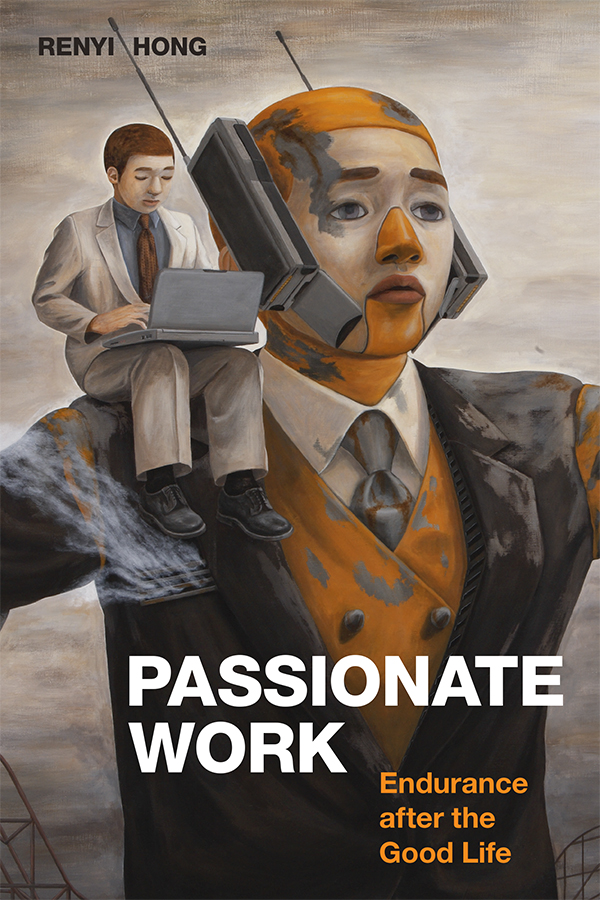[New Book Release] Passionate Work: Endurance after the Good Life by Renyi Hong
8 September 2022
IN BRIEF | 6 min read
By Wayne Sing (Communications & New Media '25)
- CNM ASSISTANT PROFESSOR HONG RENYI speaks on the relevance of passion in his new monograph, Passionate Work, positioning it as an affect that enables workers to endure the precarious and stressful conditions of contemporary work culture.

QN: Could you share briefly, in your own words, what this book aims to share with readers?
There seems to be this circular belief of logic where in order to do well in life, you need passion. But this might also set you up for situations where you might be exploited. Passion is often interpreted as a way for individuals to resuscitate and recover from situations of adversity. Ironically, I think that passion has become more important in situations where people are seen to be lacking passion. This lack of passion can be used as a way to insist on why some are not successful.
What the book aims to do is help to start a conversation on the subject of passion. It not only examines passion in individuals but also discusses situations in which people might not be passionate. I hope to uncover how passion structures our work, culture, and lives — and how it has evolved into what we know today.
QN: Speaking of passion, what inspired you to write this book?
I have always been very interested in the subject of passion. But much of the existing work on the topic was based on passion being understood as part of a trade-off, resulting in someone being exploited because they willingly accepted lower-paying jobs or pursued specific career paths such as freelance work. Indeed, I think this type of perception is very prevalent.
I wanted to talk about the historical understanding of how passion came to be the norm of human expectation. And also, in the first place, how work changed from simply being a tool to obtain wages to becoming something that is psychologically fulfilling. Passion is an energetic emotion that represents what it means to survive in a global economy today.
QN: I see. Are there any specific instances or experiences in your life that inspired this book specifically?
I wanted to think about the ways in which passion as a logic moves through society and how it structures different types of work. I saw that passion was becoming important in situations you would think of as highly dispassionate or where passion does not make sense, such as in call centre work. We often envision passion as being applicable to groups of individuals, such as millennials going for their dreams. But how would passion apply, for instance, to a call centre worker then? That kind of thinking stuck with me, and I wanted to explore it more.
QN: Just curious, what was your creative process for writing this book? Did you face any challenges along the way?
It’s definitely challenging to write a book, especially since this is my first. I found a lot of enjoyment in writing it as it allowed me to think very creatively about how the concept of passion came to be structured and why it is so important. Some of my favourite parts of the book were from Chapter 2, where I was thinking historically about how the lack of passion became, in a way, more of a pathology. That really allowed me to expand my ways of thinking.
QN: Do you have any plans for upcoming work on the same topic?
I am currently working on another book called Bareable Media, which builds on this discussion about how work has come to govern different parts of our lives. I look into the historical trend of telecommunication, as seen in how people work from home today. What I see is that there is a trend in how it manifests ways of not just organising work itself, but the broader spheres of human life and understanding global hierarchies of labour.
More on Passionate Work
| In Passionate Work, Renyi Hong theorizes the notion of being “passionate about your work” as an affective project that encourages people to endure economically trying situations like unemployment, job change, repetitive and menial labor, and freelancing. Not simply a subject of aspiration, passion has been deployed as a means to build resilience and mend disappointments with our experiences of work.
Tracking the rise of passion in nineteenth-century management to trends like gamification, coworking, and unemployment insurance, Hong demonstrates how passion can emerge in instances that would not typically be understood as passionate. Gamification numbs crippling boredom by keeping call center workers in an unthinking, suspensive state, pursuing even the most banal tasks in hope of career advancement. Coworking spaces marketed toward freelancers combat loneliness and disconnection at the precise moment when middle-class sureties are profoundly threatened. Ultimately, Hong argues, the ideal of passionate work sustains a condition of cruel optimism in which passion is offered as the solution for the injustices of contemporary capitalism. |
You may find Passionate Work now available for purchase here.

